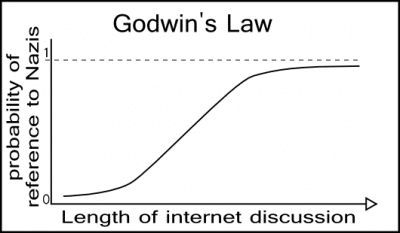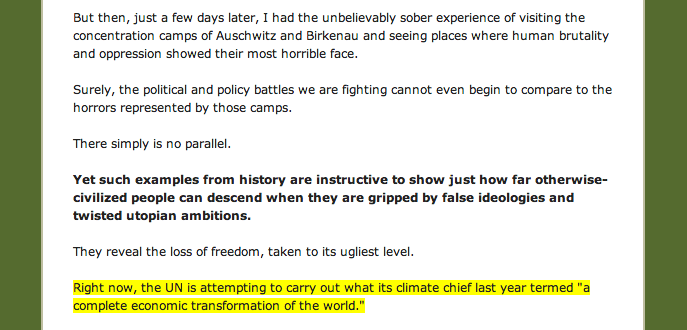Staying classy as ever, the anti-science Committee for a Constructive Tomorrow (CFACT) sent a fundraising request to its fans this week and made a reprehensible reference to the Holocaust, likening the United Nations’ efforts in international climate negotiations to the Nazi concentration camps.
After writing that “there simply is no parallel” between the horrors of Nazi concentration camps and current UN efforts to address climate change, CFACT President David Rothbard went ahead and drew the parallel anyway.
Here is an excerpt from the email (entire message viewable in PDF and online):
Subscribe to our newsletter
Stay up to date with DeSmog news and alerts







